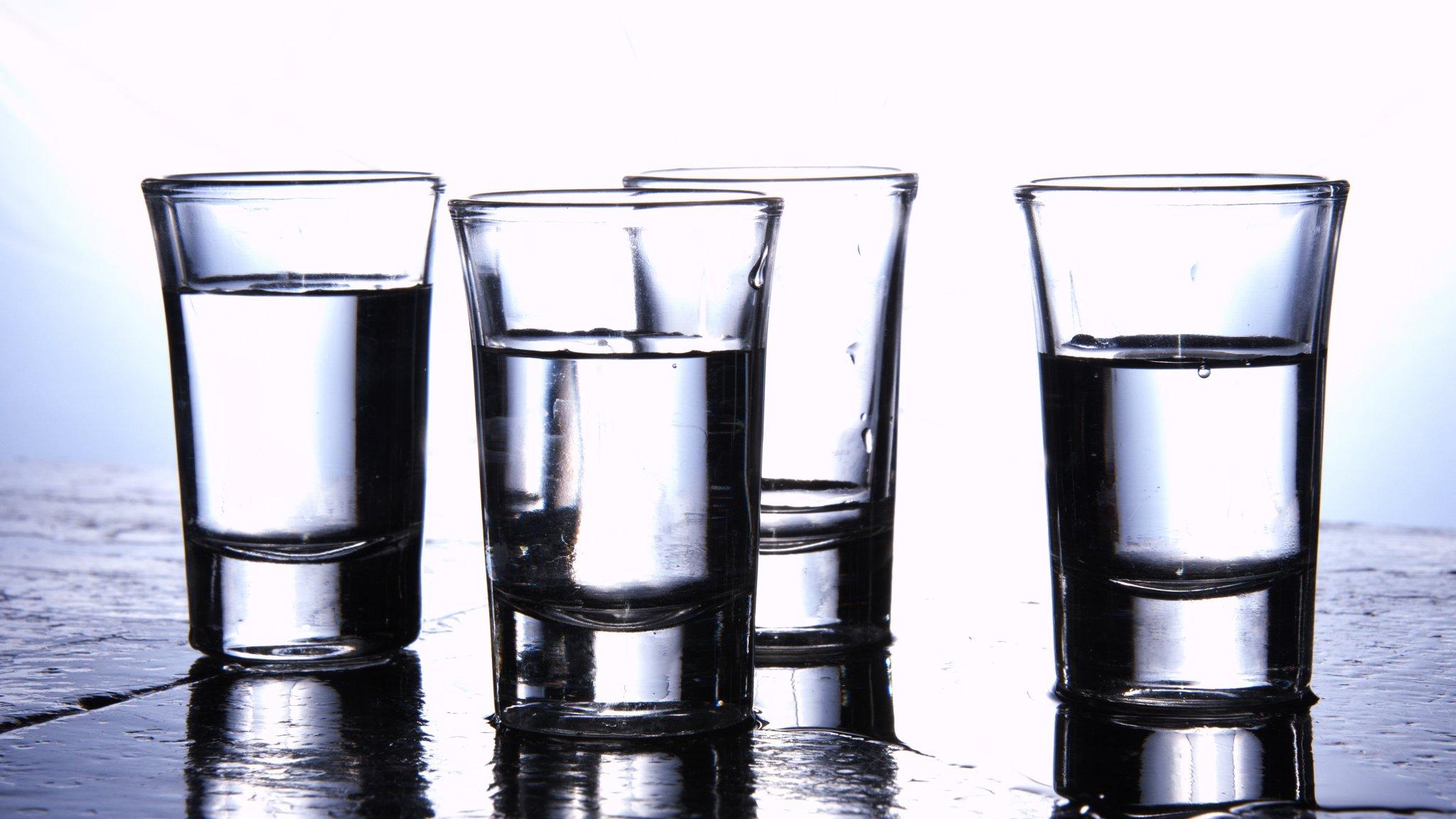Fake booze and the festive spirit
- Published
- comments
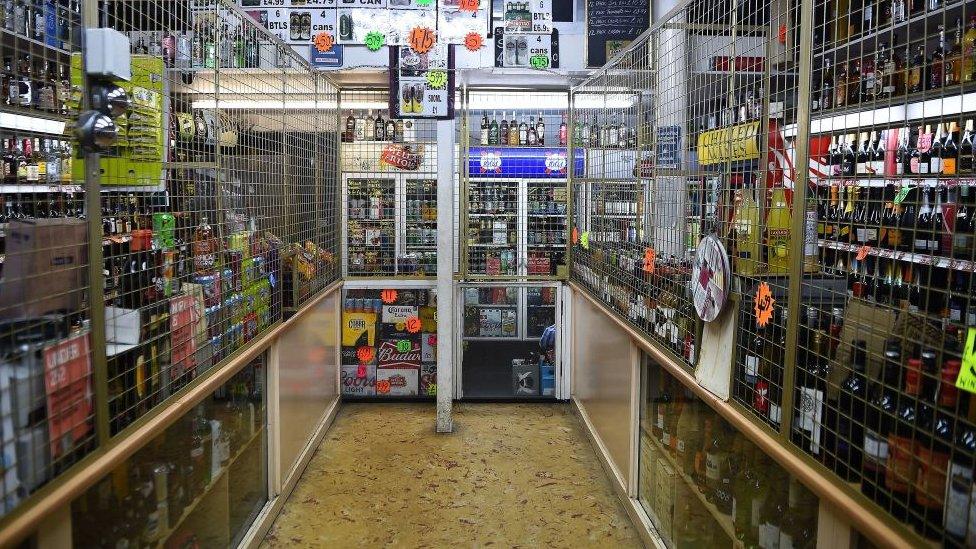
Alcohol consumption rises dramatically during the festive season but will more people be reaching for cheap counterfeit booze in the future?
Aside from the obvious health implications of festive boozing, it can also cost people a huge amount of money.
Some criminal gangs take advantage of this to offer what appears to be cheap booze but which often contains dangerous chemicals such as antifreeze and even chloroform.
Minimum pricing
From next year, minimum alcohol pricing and the Chancellor's duty hike on so called "white cider" could end up increasing the market for such illicit spirits.
In a big city like Glasgow you don't have to go far to find people who have been tempted by what appears to be cheap booze.
I discovered a group of men who, rain or shine, gather in the open air to drink in a quiet corner of the city.
"You can get it anywhere you want, it just depends where you are," says one of the alfresco drinkers.
"Whatever housing scheme you are from you can get it anywhere you want.
"Vodka, whisky, gin, anything you want. You can actually go to people's doors and get it. They actually sell it out of the house."
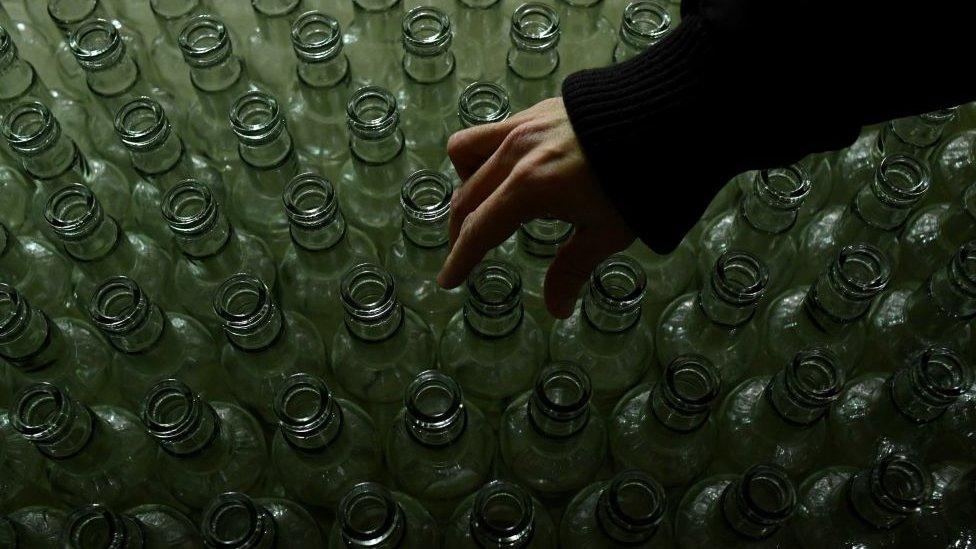
And dangerous fake booze is not just a feature of big places like Glasgow.
Two years ago Scottish Borders Council put out a warning about counterfeit vodka after a member of the public noticed something wrong and asked them to investigate.
Trading Standards Officer Tricia Scott says it turned out to contain industrial alcohol which can include dangerous chemicals like those in antifreeze, screen wash or nail polish remover.
She says: "We received a complaint from a consumer in Berwickshire who had bought a bottle of branded vodka from a local convenience store.
"The contents were found to be industrial alcohol watered down with tap water.
"There were various chemicals - isopropanol, tertiary-butanol, and chloroform.
"Obviously if you are going to consume that it's going to have serious health implications."
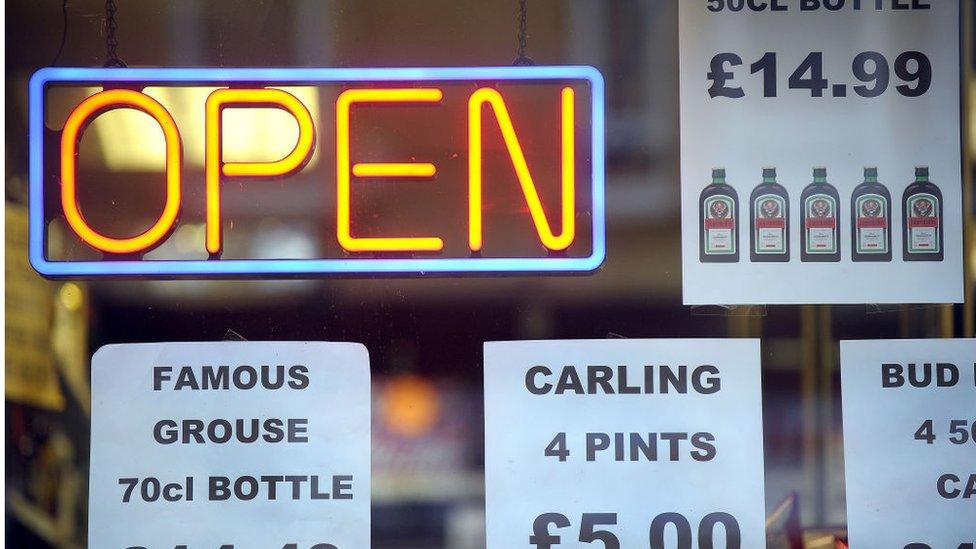
Around this time last year the Local Government Association in England and Wales warned New Year revellers that drinking bogus booze could, in extreme cases be fatal, with lethal chemicals like chloroform inducing comas, causing blindness and kidney or liver problems.
The Scottish government has just won a five-year legal battle which went all the way to the Supreme Court to be allowed to introduce minimum alcohol pricing, and in his Autumn Budget the Chancellor Philip Hammond singled out high-strength "white cider" for extra duty.
Both measures are aimed at reducing the serious health impact of cheap alcohol.
But by creating a minimum price floor there is a potential danger that the market for cheap, adulterated alcohol is expanded.
David Richardson, of the Wine and Spirit Trade Association, says: "HMRC are very aware of it, we know that the Home Office and the Treasury are very aware of it.
"The reality is that as soon as you start changing prices of alcohol at a government level, whether through excise duties or VAT or measures like minimum unit pricing, then you are introducing some sort of artificial element, potentially an incentive for fraudsters."
Market supply
Needless to say fake booze is something the police keep a close eye on.
Interpol ran a five-month operation in 2015 tackling counterfeit goods and in the UK alone they seized 10,000 litres of counterfeit or adulterated spirits.
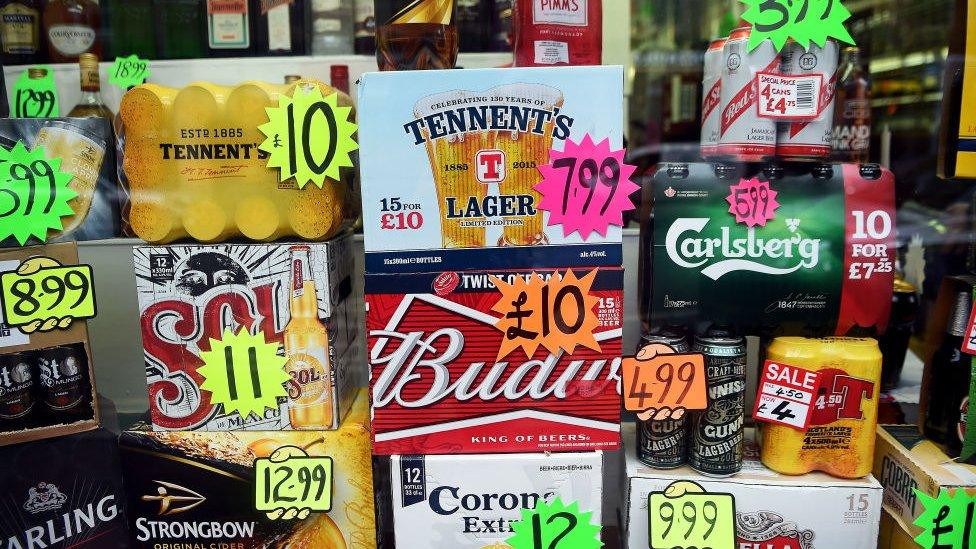
Det Ch Insp Mark Leonard, of Police Scotland, says it is something they will need to watch closely in the future as minimum pricing and the duty increase take effect.
He says: "What a criminal does is basically replicates what happens in legitimate business.
"Where there is a market for it they will try to find that product to supply.
"So if there is a demand and communities are telling us that there is counterfeit alcohol within the community as a result of minimum pricing then we would look at that."
In Glasgow, Neil Coltart is the council's senior trading standards officer with the grand title of Chief Inspector for Weights and Measures.
Constant review
He does not expect minimum unit pricing to make much difference to the demand and supply of counterfeit alcohol but it will need to be kept under constant review.
He says: "At the moment I don't envisage a huge difference in relation to the supply of illicit alcohol pre- and post-minimum unit pricing, but only time will tell."
But he accepts the potential is there for criminals to move in.
Mr Coltart says: "If you look at 50p per unit and you then work that through for beer, cider, wine and spirits that will establish a price, and it could be that post that people will then start producing illicit alcohol or re-importing alcohol but at the moment we don't have that evidence.
"It's something our intelligence systems will continue to monitor."
Back outside with the open air drinkers in Glasgow the temptation to buy is there, but there is also an acute awareness of the potential dangers of drinking fake booze.
One tells me: "It's definitely fake, it's got to be with the price they are charging.
"I mean sometimes you're getting a bottle of vodka for a fiver, rather than £14 or £15 from a shop.
"Sometimes we don't even know what we are drinking so we prefer to go to off-sales because at least you know what you are getting."
- Published22 December 2015
